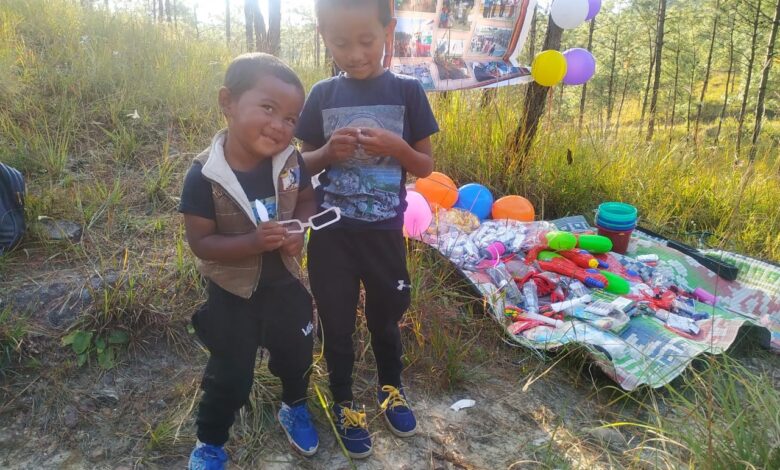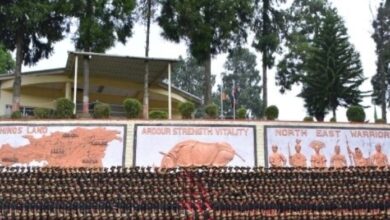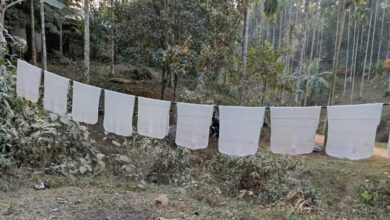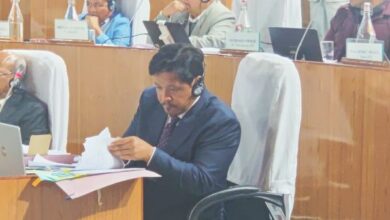SPARK on a mission to save childhood
Founder Shima Modak turns mother to hundreds of underprivileged children & ensures that none is left behind in the education system

The slum behind Ajmera Marbles on GS Road is the underbelly of Shillong. Crimes like drug peddling and illicit liquor sale were rampant a few years ago. But the situation has improved remarkably thanks to the children’s squads formed by SPARK, a city-based NGO.
Every afternoon, Shima Modak, the founder of SPARK, and her team visit the slum to teach the children, counsel them and make them aware of the social evils. Inside the dilapidated classroom covered with tin sheets and newspapers, there’s always happiness and excitement. There are complaints too, about the penury and the harsh reality. But one cannot overlook the flicker of hope in the eyes of the under-privileged children who are struggling to get out of the wretched life.
Modak, who started SPARK in 2010 with a noble objective to provide education to all children, is never tired of listening to the problems of the children and helping them solve those. Every time the 38-year-old social worker, always clad in salwar-kameez, walks into the slum, the children, most of whom are ragpickers and daily wage earners, see light in the dingy slum. Many of them are either dropouts or have never been to a school. Now, with the help of SPARK, they are being empowered with education.
“My model is simple — if children cannot attend school, we will bring the school to them. With this in mind, I started SPARK that runs schools for underprivileged children in five areas,” said Modak, a trained teacher.
Modak grew up in a lower middle-class family and was the youngest of seven siblings. Problems were galore but that never deterred her from pursuing her education. “I do not know how to express this but since childhood, I had felt a deep desire to help anyone, especially children, in distress. Now, I am happy that helping poor children is my profession,” she said.
SPARK has schools at Pongkung Mawphor in Mawphlang, Mawlong in New Shillong, Bara Bazar slum, Mawlynrei Triashnong and Rangmen Nongsder in Ri Bhoi.
“The areas were chosen after some local taxi drivers approached us. Some are chosen after SPARK was informed that children in those localities need help,” Modak said.
Besides education, the NGO members — there are 18 teachers and around 20 volunteers — engage the children in various extra-curricular activities.
Most importantly, SPARK gives these children a platform to speak about the problems they face at home, in workplace and in society.
“Every Children’s Day or on a special occasion, we bring together all the children of a particular locality where SPARK works and allow them to speak. We make them aware of the social evils and keep them abreast of the current social situation. We make them aware of laws and their rights,” said Modak, who emphasises the importance of a healthy childhood.
This Children’s Day too, Modak has special plans. Organising events for about 700 children on special occasions and during festivals is a mammoth task, especially when there is a persistent financial crisis. But “a Good Samaritan always comes forward to help”.
The celebration this year started on November 11 on the occasion of National Education Day to commemorate the birth anniversary of Maulana Abul Kalam Azad, the first education minister of independent India.
“This year, I thought here would be no celebrations as I do not have any fund. It becomes really difficult at times to plan anything for my children. But some caring friends and families always come forward to help me out. So, I can never give up hope. I won’t,” said the award-winning social worker.
Modak’s NGO focuses on the holistic growth of a child and includes training in self-defense for girls and creative courses for interested children. In fact, in 2015, a group of slum children participated in the Chicago International Film Festival.
SPARK has innovative initiatives and one of them is the children’s squad. These groups keep vigilance on in their respective localities and are trained to report illegal incidents to police or government departments concerned.
The NGO, with the help of law-and-order authorities, has been empowering the chosen groups to react to social evils, like drug abuse and alcoholism. “And they are doing a wonderful job. Additional SP Supriya Das has been helping us too and she frequently visits the Bara Bazar slum area to keep a watch on drug peddling. Things are changing,” Modak said.
The Bosco Integrated Development Society is also collaborating with SPARK to make the city child-friendly.
SPARK also extends support to children from broken families and orphans. In such cases, the NGO informs the Social Welfare Department. If it identifies a meritorious student from among the children, the NGO takes the initiative to bring the child to mainstream education. Several children have completed matriculation or are preparing for the board examinations with the help of SPARK.
Sometimes it becomes difficult for the NGO to stop child labour despite the country having a law against it. “Many ragpicking children and daily wage earners are supporting their families. Some have sick parents at home. So, we cannot ask them to stop work until we provide an alternative. However, we ensure that these children are not exploited at workplace,” asserted Modak.
Keeping their needs in mind, SPARK has set up both morning and evening schools.
Not an easy journey
SPARK’s journey has not been an easy one. From financial crisis to threats from goons, Modak had to endure distress for a long time.
Of all the woes afflicting SPARK, lack of fund is the major problem. Though it gets nominal financial support from Sarva Shiksha Abhiyan that helps in sponsoring stationeries and paying honorary to teachers, there is no regular fund flow. Modak said help comes in cash and kind from citizens.
Infrastructure is also a problem for SPARK that runs its schools in small and dilapidated rooms. “We need space for the children as this will provide them a healthy environment. But again, money becomes a problem. We appeal to all to help us in any way, be it cash or kind, so that we can sustain our activities. Our teachers are doing a yeoman work despite their personal problems. But I have nothing to give them back,” rued Modak.
Initially, SPARK faced resistance from parents, communities and local people. But with awareness programmes and dedication, Modak overcame the adversity.

“Parents whose children are already earning money would be reluctant to send them to school. It took us some hard work to change their minds. Villagers would be sceptical about our intention, and that is natural. In some localities, people who were engaged in gambling and drug business would not like our interference. But many among them are now supporting our endeavour. They are gradually understanding the importance of education,” she said.
When asked about the vulnerable areas in the city and on the outskirts, Modak clarified that it would be wrong to tag any locality as “vulnerable”. She believes that it is the mindset of people and society’s attitude towards the underprivileged children which matter.
“I have seen children who were victims of abuse at home and I know children who have received help from neighbours in time of crisis. We have to be affectionate enough to understand these little ones’ problems as they do not know about their rights, which makes them vulnerable,” said Modak.
do not know about their rights, which makes them vulnerable,” said Modak.
At the same time, she stressed the need for strong monitoring of implementation of the existing laws and policies for children to ensure that their rights are protected.
“The government should constitute an independent monitoring group. We have enough laws and policies to protect our children and all we need is proper implementation,” she added.
Modak and her team have set an example for all to better the society and make it safe for children. The SPARK members are persistent in their quest for justice for all the young ones whose voices are seldom heard. There is no pecuniary gain from this service but the satisfaction, said Modak, is incomparable.
“I never feel that I am doing something for these children. In fact, they are giving me the joy of life. It is a blessing for me and I will never let it go,” said Modak, the foster mother of hundreds of underprivileged souls.
~ Team Sunday Monitor
Photos sourced





